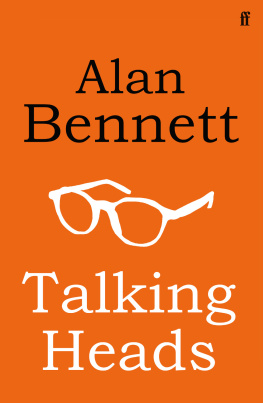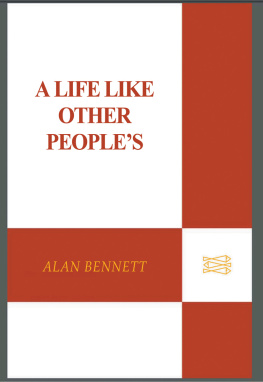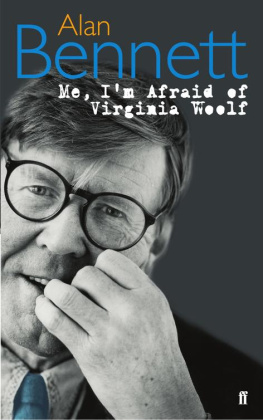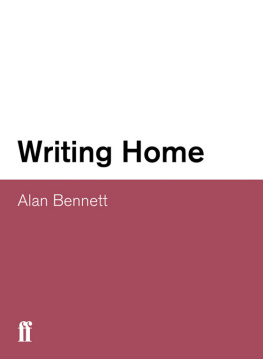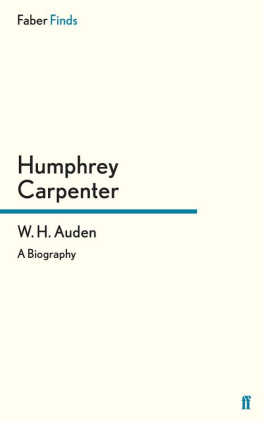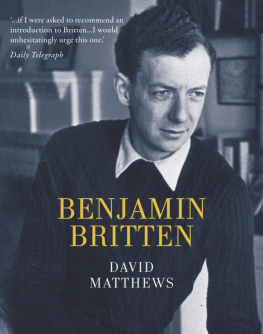FABER AND FABER, INC.
Introduction
By the time Auden came to live in the Brewhouse, a cottage in the grounds of Christ Church, in 1972, I had long since left Oxford, and in any case would never have had the nerve to speak to him. Id first heard his voice in Exeter College hall sometime in 1955. The lower end of the scholars table where I was sitting was only a yard or two from High Table where the dons dined, and hearing those harsh, quacking tones without knowing whose they were, I said to my neighbour that it sounded like the voice of the devil. Someone better informed put me right. It was Auden, at that time still with blondish hair and the face yet to go under the harrow.
I dont think Id read much of his poetry or would have understood it if I had, but when Auden gave his inaugural lecture as Professor of Poetry the following year, I dutifully went along, knowing, though not quite why, that he was some sort of celebrity. At that time I still harboured thoughts of becoming a Writer (and I thought of it in capital letters), so when Auden outlined what he took to be the prerequisites of a literary life, or at any rate a life devoted to poetry, I was properly dismayed. Besides favourite books, essential seemed to be an ideal landscape (Leeds?), a knowledge of metre and scansion, and (this was the clincher) a passion for the Icelandic sagas. If writing meant passing this kind of kit inspection, Id better forget it. What Auden was saying (and he said it pretty regularly) was, All do as I do, which is what unhelpful writers often say when asked about their profession, though few with such seeming conviction and authority as the newly inaugurated Professor of Poetry.
He used to hold court in the Cadena, but it wasnt a caf I cared for. There were undergraduates I knew at whom Auden made passes, though I was still young and innocent enough to find a pass as remarkable as the person making it.
When he died in 1973 his death seemed to me less a loss to poetry the poetry was largely over than a loss to knowledge. Auden was a library in himself and now all this store the reading, the categories, the associations had gone down with that great listing clay-coloured hulk. And though much of what he knew he had written down and published, either as lectures or in reviews, there was always more: the flurry of memoirs and reminiscences of the poet and his talk that began almost immediately on his death, not only a testament to his life but an attempt to salvage some of the wisdom he had discarded in conversation and some of the unwisdom, too.
In The Hunting of the Snark , Lewis Carroll, a Christ Church don, wrote: What I tell you three times is true. With Auden, also at Christ Church, it was the opposite. What Auden said three times you would begin to doubt, and when hed said it a dozen times nobody cared anyway. Auden somewhere makes the distinction between being boring and being a bore. He was never boring he was too extraordinary for that but by the time he came back to live in Oxford he had become a bore. His discourse was persistently pedagogic; he was never not teaching and/or showing off how much he knew, always able to make a long arm and reach for references unavailable to his less well-read hearers. As he got towards the end of his life his conversation and his pedagogy got more and more repetitive, which must have been a particular disappointment to his colleagues at Christ Church, where, when he had been briefly resident in the past, he had been an enlivening member of the common room. Now he was just infuriating.
What they had been hoping for was, understandably, some form of enlightenment and entertainment. This was made plain early on in the The Habit of Art , in a speech by the Dean which had to be cut, as favourite bits of my scripts often are:
The Brewhouse is not a garret, quite say sheltered accommodation rather. A granny flat. But mark this. If the college is minded to provide this accommodation its for nothing so vulgar as a poet in residence. This isnt Keele, still less is it East Anglia. No. We see it as providing a niche young persons nowadays might even call it a pad for one of our most renowned graduates. If it is a touch spartan, blame the Steward, but then the point of Parnassus was never the upholstery. Besides, the hope is that undergraduates will find their way up the stairs to sit not in the chairs but at these famous feet. But remember, we are not asking the great man to do . His doing after all is mostly done. No. We are asking him to be . Count the poets presence here as one of those extra-curricular plums that only Oxford has to offer. Fame in the flesh can be a part of education and in the person of this most celebrated poet the word is made flesh and dwells among us, full of grace and truth.
But to everyones disappointment the college, the students, Auden himself it didnt turn out like that. But say it had been Larkin at the same stage of his life he wasnt much fun either at the finish.
In 1972, when Auden arrived in Oxford, Britten was well advanced in the writing of Death in Venice , his last opera. Neither poet nor composer was in good health, with Auden six years older than Britten. I never met or even saw Britten, but find I wrote about him in my diary in June 2006:


